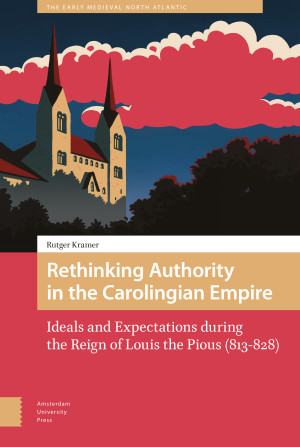"In his superb new monograph, Rutger Kramer investigates the origins and manifestations of the striking, consequential self-consciousness of the Carolingian episcopate and argues that it developed during the early years of Louis the Pious's reign. [1] [...] Explicit references to Carolingian self-consciousness appear on nearly every page of Kramer's study. What Kramer shows with astonishing clarity is the extent to which the "Carolingian experiment" was characterized by--indeed, was constituted by--a constant watching, and the implications of this surveillance."
- Courtney M. Booker, The Medieval Review, 21.08.26 (2021)
"There is much to admire here. Kramer’s extensive research is reflected in the copious bibliography. [...] Kramer is clearly aware of the limitations of both his sources and his methodology, but he is also very attuned to the possibilities that this kind of case-study approach might offer."
- Laura Wangerin, Church History, Vol. 91, Iss. 3


